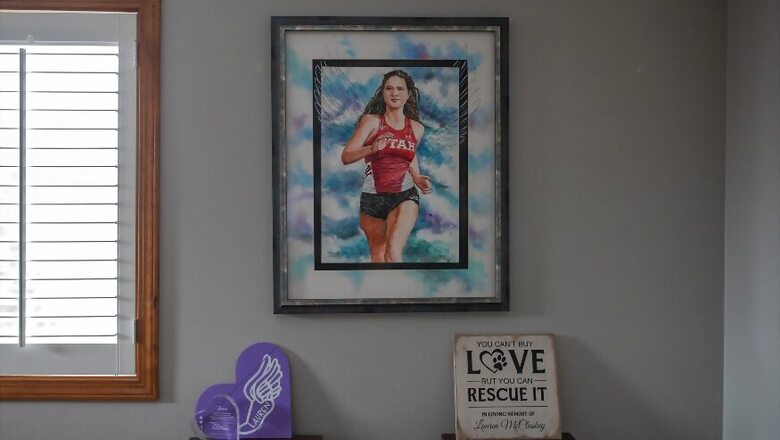
views
A campus police officer in whom a college student confided that she feared for her life after a recent breakup shared nude photographs that she had given him with officers not involved in the matter just weeks before she was murdered, her parents contend in a new lawsuit.
The lawsuit was filed Monday in state court in Salt Lake County by the parents of Lauren McCluskey against the University of Utah, where McCluskey was a college senior when she was killed in October 2018 by a man she had dated for just a few weeks. The suit came a year after McCluskey’s family sued the university in federal court, where settlement negotiations have reached an impasse.
The man, Melvin Rowland, shot McCluskey seven times on October 22, 2018, after kidnapping her. He later took his own life.
McCluskey’s parents, Jill and Matthew McCluskey, contend in the state lawsuit that the university and the campus Police Department failed to take action when their daughter, a track standout from Pullman, Washington, repeatedly reached out to the authorities for help in the weeks leading up to her death.
Their daughter had sounded the alarm about being stalked, threatened and blackmailed by Rowland, whom McCluskey had broken up with when she learned that he had lied about his name and was a convicted sex offender on parole, the lawsuit said.
McCluskey, 21, turned over photographs to Miguel Deras, a campus police officer at the time, telling him that Rowland had threatened to release them unless she paid him $1,000, according to the lawsuit. Deras kept the images on his personal cellphone and shared them with friends, the suit contends.
“One of the things that shows a certain cavalierness and inappropriateness, at best, is this Officer Deras showing compromising photos to other officers who were not involved in the case that were used to blackmail Lauren,” James W. McConkie, a lawyer for the McCluskeys, said in an interview Monday.
The alleged breach of privacy was first reported last month by The Salt Lake Tribune, which said that the Police Department in Logan, Utah, where Deras is now employed, had begun an internal affairs investigation into the matter.
A spokesman for the University of Utah said the school would not be commenting on the lawsuit until its lawyers and the state attorney general’s office, which is also representing the university and campus police officials, had a chance to review it.
A report commissioned by the university identified dozens of ways that it could have responded better. This year, the university created a new position devoted to handling allegations of intimate partner violence and sexual assault.
A lawyer for Deras did not immediately respond to a request for comment Monday night, but told KSL NewsRadio last month that the allegations were “absolutely untrue.”
The internal affairs investigation and an independent inquiry are continuing, Chief Gary Jensen of the Logan City Police Department said in an email Monday.
Both lawsuits are seeking $56 million in damages for the Lauren McCluskey Foundation, a nonprofit organization dedicated to improving campus safety. The federal suit contends that McCluskey’s civil rights under Title IX, the 1972 federal law that prohibits sex discrimination in programs that receive federal funding, were violated.
McCluskey’s parents are challenging past interpretations of a state law in Utah that McConkie said had given all state institutions, including the University of Utah and its Police Department, immunity from wrongful-death claims.
He said that the university was negligent in its handling of McCluskey’s repeated requests for help and violated an equal protection provision in the state constitution.
“There was a culture of misogyny in the Police Department that the university controls and that caused them to take Lauren’s complaint less seriously than a man’s,” McConkie said.
McConkie said that campus police failed to do its due diligence in looking into Rowland’s criminal background.
“They never investigated to see who he really was,” he said. “He was on parole. He would have picked up in an instant.”
Neil Vigdor c.2020 The New York Times Company
















Comments
0 comment